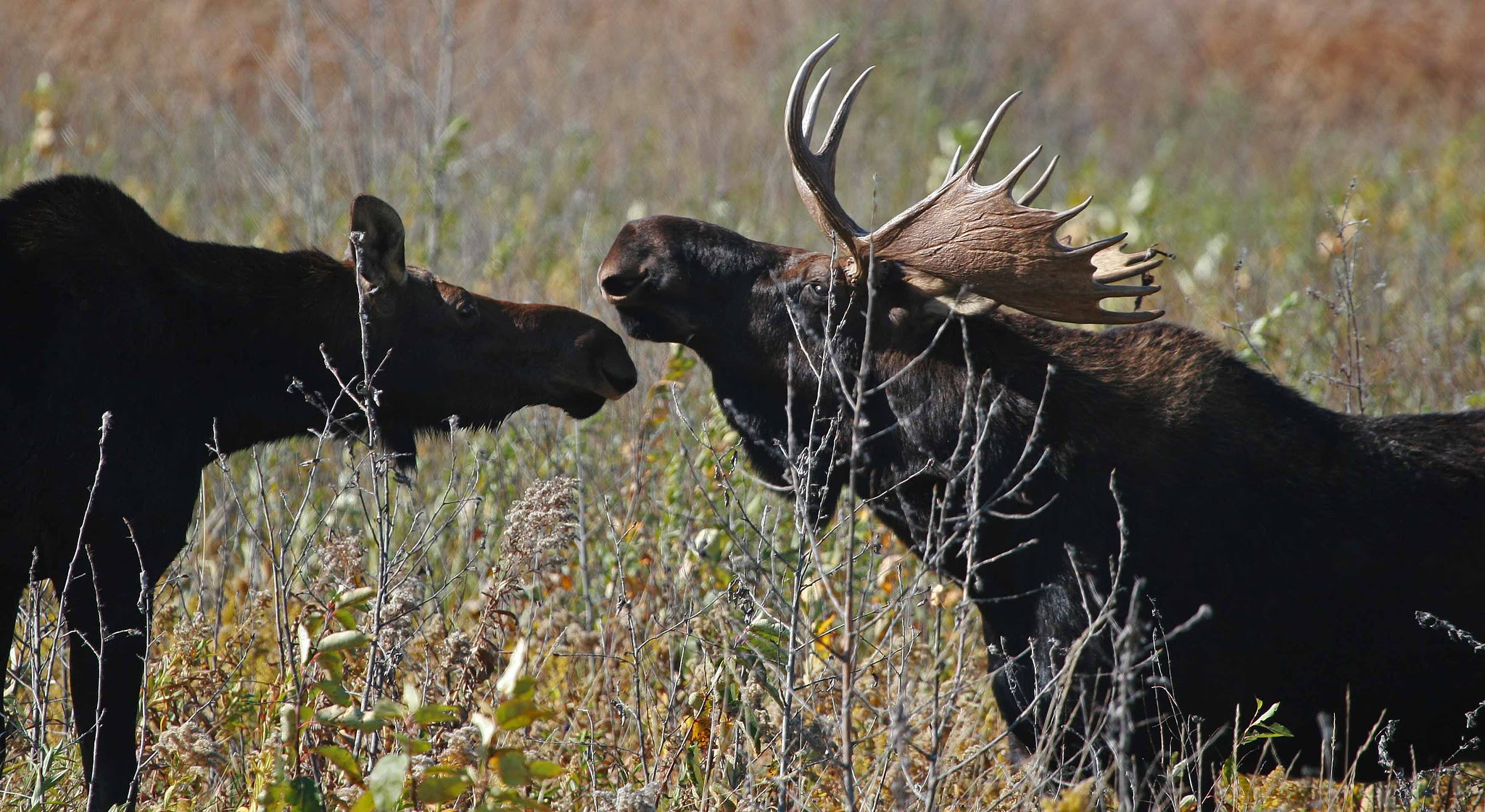LOCAL
Federal protection to Minnesota moose denied
The U.S. Fish and Wildlife Service (FWS) denied the listing of the Northwestern moose (Alces alces andersoni) as a federally protected species under the Endangered Species Act. The federal agency declared that there is no strong evidence to support that the native moose is an independent population compared to the subspecies range, which includes areas in Minnesota, Michigan, Wisconsin, North Dakota, and several provinces in Canada. Conservationists argue that the FWS did not consider the significant menace the local moose has been facing for more than a decade.
Over the past decade, the parasitic meningeal worm infection has been a key factor which contributed to the population decline among the local Northwestern moose population. The white-tailed deer and some species of slugs play important roles in the transmission of the infection to the moose. Recent studies showed that the risk of the worm infection is heterogeneous across habitat types, soil characteristics, and seasons. The proper management of this disease is a complex endeavor as it requires not only the control of the white-deer population but also the environmental and spatial scales affecting the worm’s life cycle.
Although federal protection was negated, state protection will remain active. State monitoring efforts have demonstrated a sharp decline in the moose population, when compared to the data in 2006. Since 2012, the population has remained low but stable. However, the population has not recovered, which would put the moose in dire risk at times of adverse events. Successful recovery strategies would require more direct efforts from federal, state, and research institutions to deal with the complexities of the fall in moose population.
NATIONAL
US plan to boost aquaculture suffers judicial backlash
The US government is visibly interested in boosting the national aquaculture production, primarily to confront the growing “Seafood deficit”. Government statistics indicate that 90% of seafood consumed by Americans is imported, reaching a staggering US$17 billion in 2017. In May 2020, President Trump signed an executive order to promote the fish farming sector in the country by modifying the regulatory process and developing a national seafood trade strategy. The document also considers plans for the development of offshore farming areas within federal jurisdiction.
The executive order met stiff resistance from environmentalist groups that were apprehensive towards the potential negative effects that industrial aquaculture could cause in the marine environment. The environmentalist groups rejected the idea of boosting the national seafood production by allowing fish farms in federal water and were successful in the subsequent legal dispute to stop its implementation. The risks of ocean pollution, fish escape, damage to wildlife, spread of diseases, and socio-economic impact among seafood-dependent communities arose as the main arguments to oppose the plan of offshore aquaculture development.
Despite the environmental advocates' success in stopping the restructuring of the U.S. fish farming sector, the aquaculture industry remains a promising actor to promote food security and sustainable production standards when compared to the terrestrial meat industry. Ongoing research has allowed for improvements in the areas of habitat preservation, environmental mitigation, feeding practices, and disease management, thus increasing the overall sustainability of the fish farming production. Given this scenario and the limited land and freshwater areas, marine fish farming is expected to play a pivotal role in reshaping the food supply chain while advancing in food production sustainable goals proposed by the United Nations.
INTERNATIONAL
COVID-19 and the rise of food as a political asset
The sudden life-threatening conditions due to the inability to consume adequate nutrients is designated “acute food insecurity” according to the World Food Programme (WFP), a United Nations (UN) agency. It has been estimated that the COVID-19 pandemic is dramatically increasing the number of people subject to starvation from 130 million up to 265 million globally, mostly from areas already affected by conflicts or climate change scenarios.
The WFP executive director, David Beasley, declared that despite the fact that the agency is providing vital support to 100 million people, the current global situation is significantly surpassing their response capabilities. Beasley therefore urged for an international response to avoid a potential “hunger pandemic.”
As food insecurity issues have reemerged as a primary geopolitical risk disproportionately among low-income countries, food has become a key asset in the current geopolitical situation. The COVID-19 pandemic emergence has been adding excessive pressure to the global food supply chain, already stricken by an increasing global population growth and trade imbalances, making potential food shortages a serious national security threat for numerous countries.
This unfortunate reality might result in big economies exerting dominance over food supply, while poorer nations would experience rising food prices and eventually food shortages. The decrease in food production is happening in part due to the effect of the ongoing pandemic. Together with the increase of food demand from emerging economies, it could create the ideal environment for the rise of resource nationalism, protectionism, political instability, and migration. Thus, this potential situation would undoubtedly add food as an important political tool within the global geopolitical landscape.
Star Tribune
Journal of Mammalogy
Minnesota Department of Natural Resources
The Washington Post
Center for Food Safety
Journal of the World Aquaculture Society
United Nations
Freedomlab
Geopolitical Monitor
|

